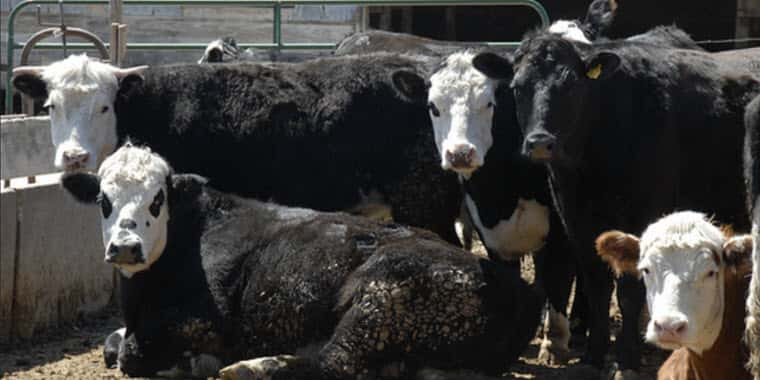Vesicular Stomatitis (VSV) that has affected some of Wyoming’s equine, has now spread to cattle in three different herds. The cattle cases are believed to be in Park and Platte county with an unofficial report of a herd in Hot Springs county as well. VSV was first discovered in Wyoming around late July when a horse in Platte county was confirmed by state and national veterinarian’s with the virus. Since then, twelve counties across the Cowboy State have confirmed cases in equine infections. Biting insects is believed to be the main cause for the outbreak, however the viral disease is highly contagious and can spread by animal to animal contact.
Vesicular Stomatitis (VSV) is a viral disease that commonly affects horses, cattle and pigs but can affect sheep, goats and wild animals. The major concern with this disease is that it mimics Foot and Mouth Disease (FMD), which has been eradicated in the United States since 1929. Introduction of FMD into the U.S. would have tremendous economic consequences so the U.S. Department of Agriculture’s Animal and Plant Health Inspection Service (USDA-APHIS) monitors any disease that can look similar to FMD. The only way to distinguish VSV from FMD in livestock is through laboratory tests. Horses are not affected by FMD. Oral lesions are a common indicator that a horse may be infected with VSV. There is no vaccine available for VSV.
The state livestock board requests producers that believe their livestock may be infected with VSV to contact their local veterinarian as soon as possible.


